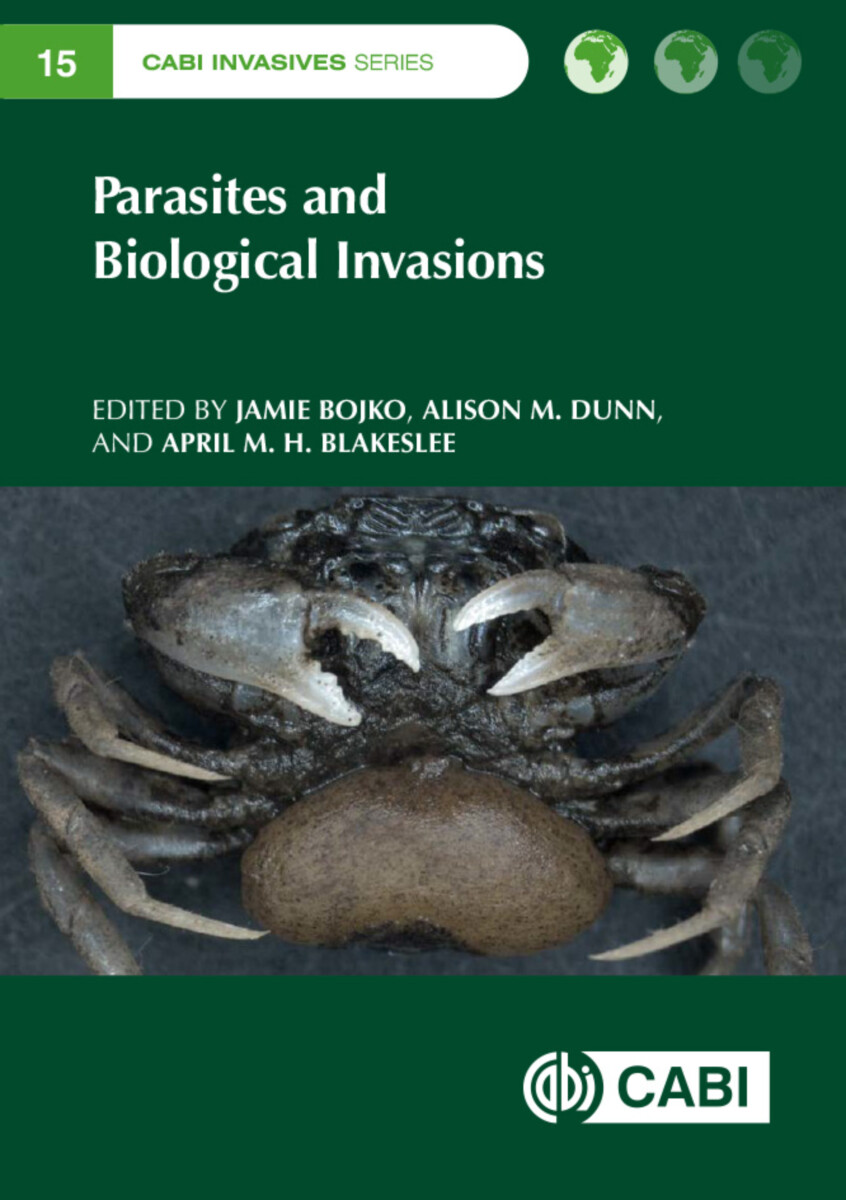- Publisher
CABI - Published
21st November 2023 - ISBN 9781789248111
- Language English
- Pages 160 pp.
- Size 6" x 9"
Biological invasions - the introduction, establishment, and spread of invasive alien species - are complex global phenomena that can cause significant environmental, ecological, and economic harm. Along with the direct effects of an invasive host organism, there is the additional threat of co-introduced pathogenic and parasitic species. Co-introduced parasites can affect the success of the invasive organism but can also go on to infect hosts in the new range, resulting in novel ecological interactions and complex impacts. These invasive parasites can have profound impacts on the success of a biological invasion, and can pose a significant risk to wildlife, in addition to organisms cultured for agriculture and aquaculture.
Compiling information on parasite invasions for the first time, this unique book:
- Provides an in-depth resource on parasite invasions, revealing the subtleties underlying biological invasions and co-introduced disease;
- Examines the phenomenon and consequences of parasite release in invaded host communities;
- Explores parasite invasion impacts, interactions and diagnostic techniques;
- Includes case studies across a broad range of hosts (plants, vertebrates and invertebrates) and parasites (viruses to large Metazoa), from a plethora of aquatic and terrestrial environments.
Jamie Bojko
Dr. Jamie Bojko has a B.Sc. Hons. degree in Genetics (IND) and a PhD in aquatic pathology from the University of Leeds (UK). His B.Sc. and Ph.D. were both completed in association with the Centre for Environment, Fisheries and Aquaculture Sciences (Cefas) - a global leader in aquatic pathology and diagnostics, situated in the UK. Jamie is now an associate professor at Teesside University and has contributed to multiple academic books, and authored over 60 peer-reviewed publications. He is consultant faculty at the University of Florida, where he was a postdoctoral researcher in aquatic disease ecology; and he is a scientific advisor for the British Divers Marine Life Rescue (BDMLR) charity. Jamie's research, and the broader Bojko Laboratory team, now explore the advanced detection and systematic description of parasites, and promote the conservation of marine animals (such as seal populations) via rapid disease diagnostic technology, with an overall aim to determine both the diversity and impact of (invasive) parasites upon native or non-native communities, and the environment.
Alison M. Dunn
Alison M. Dunn's first degree was in Zoology at Pembroke College Oxford. After working as a nature reserve warden, a lab technician and a violin teacher, she returned to academia to undertake a PhD in host parasite evolution at the University of Leeds. Her post-doctoral research was at the NERC Centre for Population Biology, Imperial College. She came to the University of Leeds as a NERC Research Fellow, before joining the academic staff where she is now Professor of Ecology. Alison's research asks fundamental questions about invasive species and diseases as well as exploring biosecurity policy and practice. Her group uses invasive species and novel host-parasite interactions to investigate how parasites drive changes in host behavior and life history (trait mediated effects), which in turn affect competitive and consumer-resource interactions, and the outcome for community structure and ecosystem function. She also has projects looking at extinction and conservation of free-living and parasitic organisms. Biosecurity is a critical first line of defense to prevent the introduction and spread of Invasive Alien Species and parasites, and the team collaborates with environment managers to develop practical biosecurity practices for a range of field conditions and to translate research evidence into policy and on the ground solutions.
April M. H. Blakeslee
Dr. April M. H. Blakeslee has a Ph.D. from the University of New Hampshire and Masters and Bachelors degrees in Biology from Boston University (Boston, Massachusetts). Dr. Blakeslee is an Associate Professor of Biology at East Carolina University and Adjunct Faculty at Shoals Marine Laboratory (University of New Hampshire/Cornell University) and Miami University's Global Field Program. Dr. Blakeslee serves as Deputy-Editor-in-Chief for BioInvasions Records and Associate Editor for Aquatic Invasions and Diversity and Distributions. She is an appointed US member of the Working Group on the Introduction and Transfers of Marine Organisms (WGITMO) through the International Council for the Exploration of the Sea (ICES). Prior to her faculty appointment, she received two competitive postdoctoral fellowships to work in the Marine Invasions Ecology Laboratory at the Smithsonian Environmental Research Center (SERC) in Edgewater, Maryland, where she performed research on marine invasive species and host-parasite interactions. Her research group focuses on marine and estuarine conservation biology and includes a diverse research program involving biodiversity, population genetics, parasite ecology, and biogeography as well as the unique and integrative insight that can be gained from studying biological invasions. Her research includes biogeography and phylogeography of free-living and parasite species; host-parasite interactions, host-parasite coevolutionary history, and parasite ecology; species invasion histories and vectors; population genetics and evolutionary ecology in native and non-native populations; and biodiversity and community ecology.


